Gus G talks Brand New Revolution: "I wanted to push myself with the solos on this record"
The Greek guitar god returns
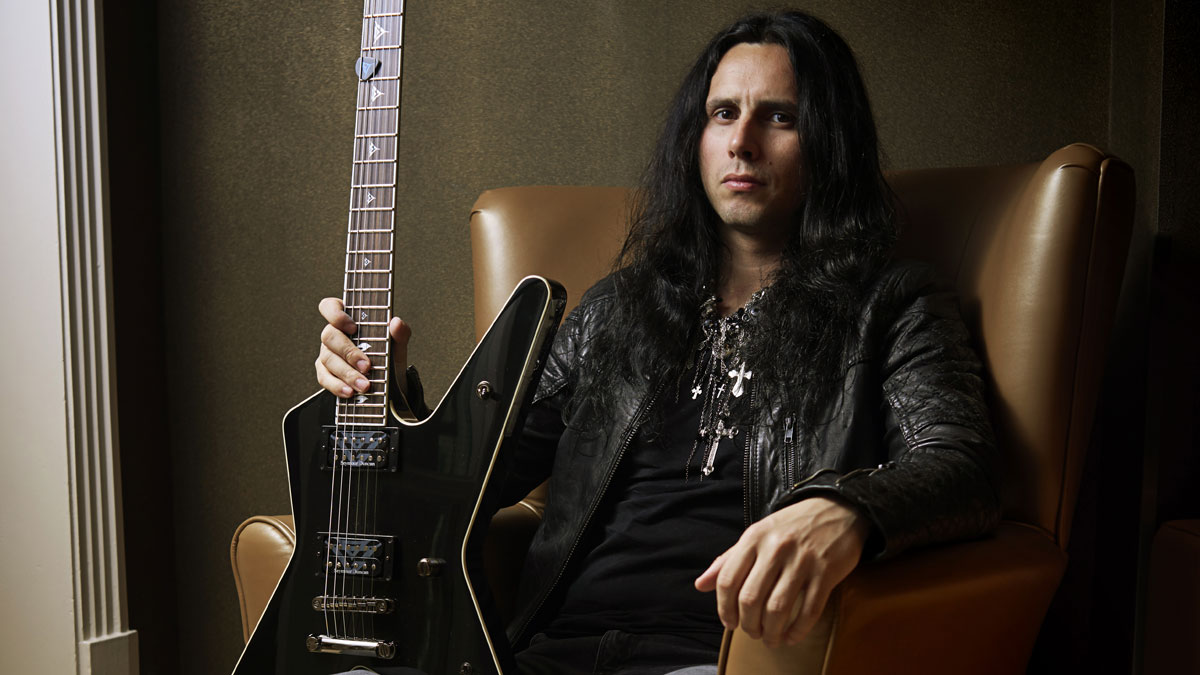
Introduction
Ozzy’s virtuoso axeman is back with his latest solo effort, Brand New Revolution. Gus G talks to us about writing and recording the album, and, in particular, the realisation that he had to re-record all of his solos…
Ozzy Osbourne’s right-hand man has just released his second solo album in 18 months, Brand New Revolution
Gus G is a hard-working guitarist. Having cut his teeth with Nightrage and Dream Evil in the early 2000s, recording - to date - eight albums with pet-project Firewind and touring heavily to support I Am The Fire in 2014, Ozzy Osbourne’s right-hand man has just released his second solo album in 18 months, Brand New Revolution.
Treading a straight hard-rock path, less metal and more radio-friendly than Firewind, but still as tightly performed as you’d expect and with solos that melt faces, you get the sense that Gus is comfortable in this space.
Still, a comfortable headspace wasn’t enough to stop the man from Thessaloniki halting the recording process mid-way to redo all of his solos. Clearly, Gus G is a man with high standards when it comes to his recorded legacy…
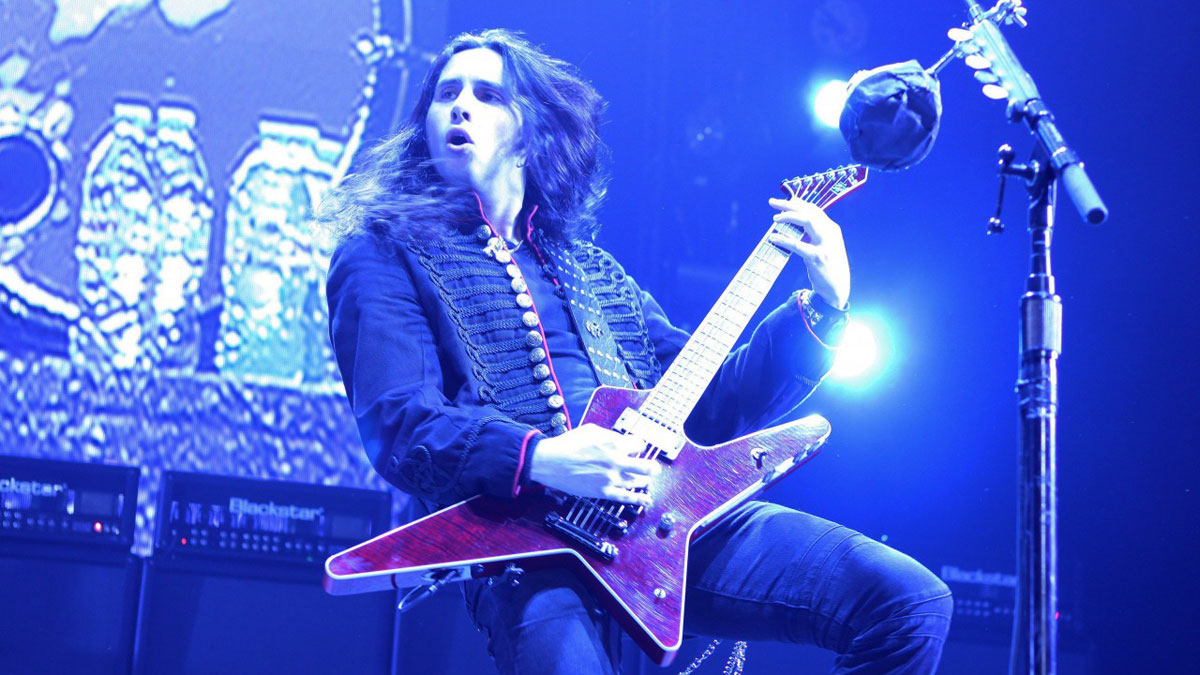
Do-over
How would you describe your solo material compared to your work with Firewind?
“Comparing it to Firewind, it’s very different. It sounds more American than Firewind. Firewind sounds more European, with more of a power-metal background; a more melodic-metal European background.
“On this album, I wrote with a lot more people from America, so you have a bit more of that kind of sound. I would say this is more my hard-rock side, even though this album is a bit heavier than the first one. On the first album, I wrote a lot of stuff on acoustic guitar. On this one, I just wrote a lot of riffs!”
Did you write everything in advance, or did those riffs evolve in studio sessions?
I just got stressed from the clock ticking and I couldn’t really work like that. So I redid everything
“I did demos first. I programmed drums and played bass and came up with the riffs. I’d send [the demos] to the singer - whoever that’d be - and we’d do a verse and a chorus, or whatever, and then when we got together in the studio, we figured out the solo parts and the final arrangements.
“I’d write with the singers first, so that part was done. I’d know what the song was going to sound like. We went in [to the studio] and jammed and then finalised the arrangements there.”
Can you tell us more about the process of writing your solos in the studio?
“Well, that’s something that I had to redo twice on this record! [Following the demos] I did stuff in the studio that I was not happy with, so I took the hard disc back with me to my home studio and did everything over again.
“I just got stressed from the clock ticking and I couldn’t really work like that. I wanted to push myself with the solos on this record. So I redid everything, actually. I rewrote them. I erased them. I deleted them from the hard disc. I deleted them from my brain and then went from scratch again.”
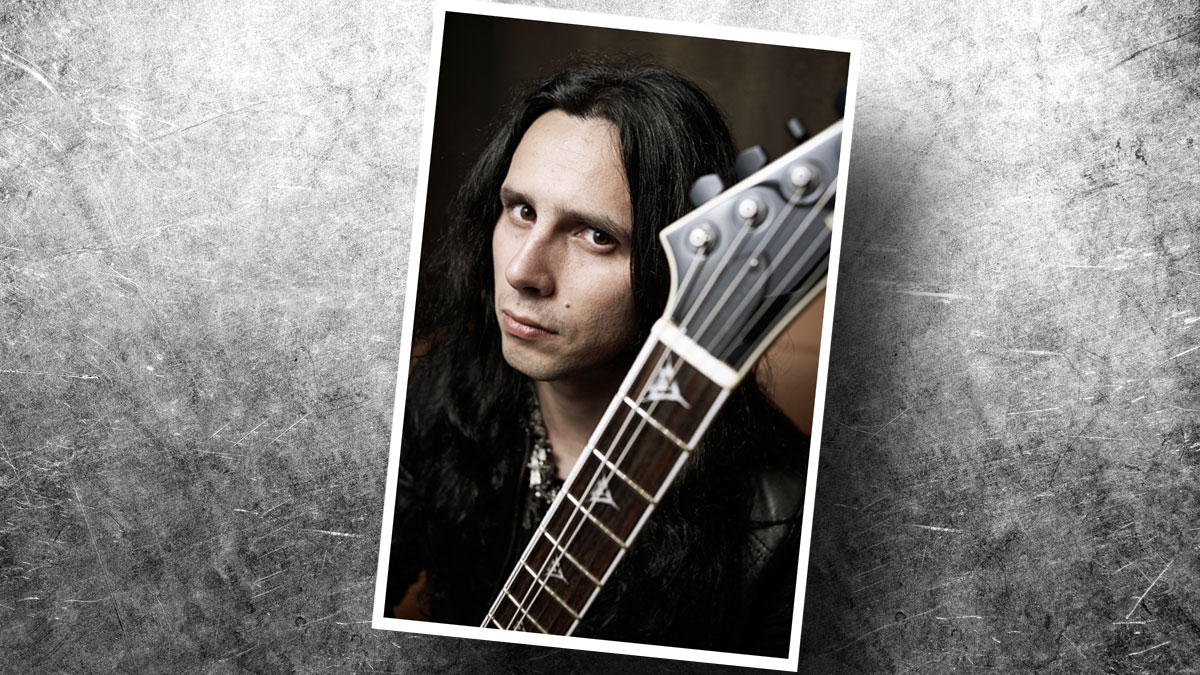
Getting Wylde
It seems like every solo has a blazing lick, even when the solo isn’t a face-melter!
“I really tried to go for that, yeah! I wanted every song to have the right solo that will make an impression and [an] impact. That’s why the solo is there. I want every solo, when it comes up… [pauses]… everything else stops and you’re like, ‘Woah, what is this now?’ I wanted to go for that vibe, so that’s why I push myself.
I had in mind Randy Rhoads’ and Zakk Wylde’s solos, because originally I wrote One More Try thinking that we should give it to Ozzy
“Behind Those Eyes is one of my favourite solos. I did the solo originally, and it was one of those where I didn’t like it. I went back and I thought, well, it’s a melodic track, and in my first solo I was holding back. I said, ‘I’m just gonna go 100 per cent on this, shred over this’ and it came out cool.
“The outro solo was the last thing I recorded. I’d sent everything to Mike Fraser and while he was mixing, I said to him, ‘Wait, I’m going to send you a new track file now.’ Then I re-recorded the outro solo. I improvised a couple of takes and this one just came out very naturally. It’s a very bluesy solo.”
One More Try is another of the softer tracks on the album. Was its solo improvised, too?
“Actually, this is probably the one solo that I kept from the demo. It’s a melodic, memorable solo… but all my solos have a beginning, a middle and an end, you know, where there’s a fast part and a melodic part. One More Try is a good example of that.
“I had in mind Randy Rhoads’ and Zakk Wylde’s solos, because originally I wrote that song with Jacob [Bunton, singer] thinking that we should give it to Ozzy. So it has a very Goodbye Romance or Road To Nowhere vibe. But it’s such a good song and probably Ozzy’s not going to do a record for a while now, so I put it on the record. I can write some more stuff later!”
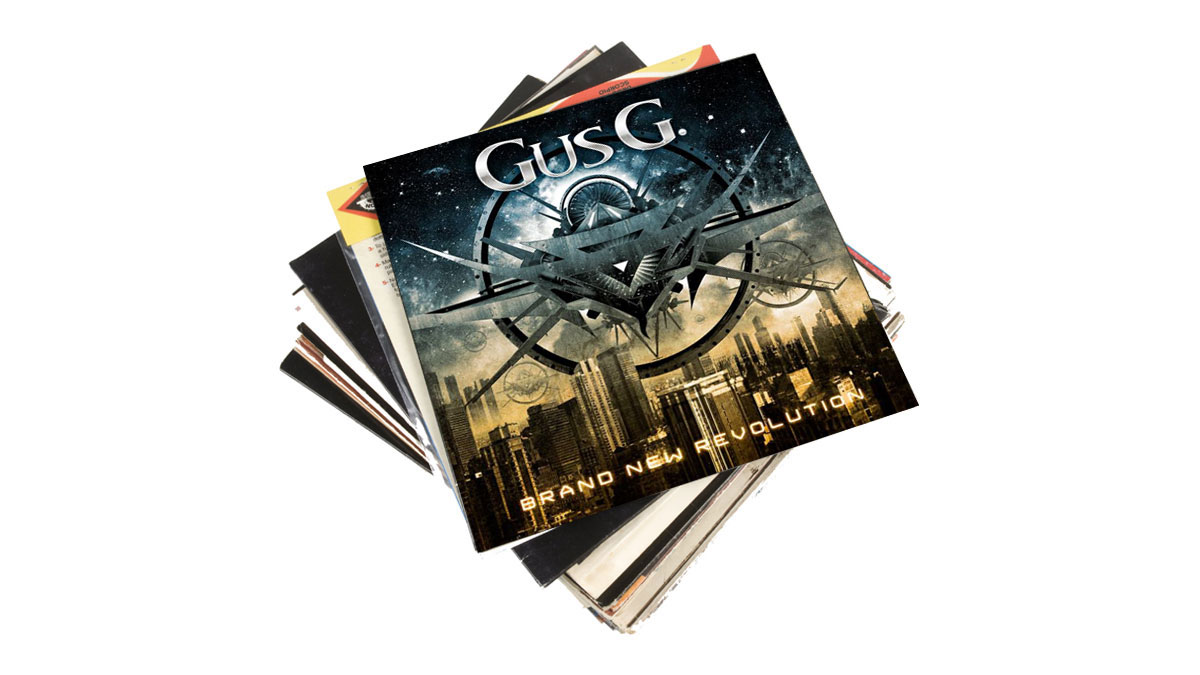
Instrumental insight
Instrumental track The Quest displays your incredible technical skills. How did this track come together?
Instrumentals just don’t flow out of me really that easily. When I have one, I’ll really work on it
“It’s a combination of riffs and different ideas that I had here and there. It was another demo and then I [added] an old riff of mine from back when I was 18 - that’s the middle part with the main solo over it. I had some acoustic stuff and it was kind of a blend of a lot of stuff. Somehow it made sense!
“It took a while. It’s not the kind of song you sit down and you write in 10 minutes. My approach was having a series of really cool heavy riffs, fast riffing, groovy riffing and melodies, and I put stuff over it to try to create themes on lead guitar, and that was why it turned out like that.
“With that said, I thought I’d only have one instrumental this time. Instrumentals just don’t flow out of me really that easily. When I have one, I’ll really work on it and it’ll be a really great one. I just write songs - that’s my natural place.”
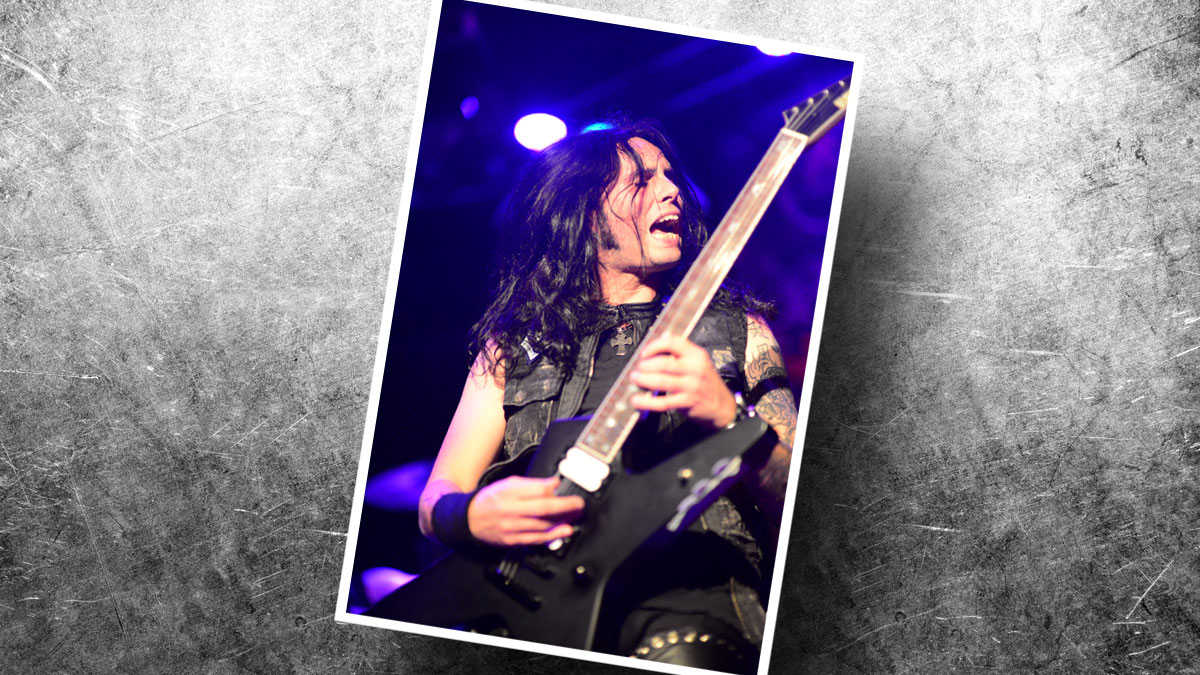
GN'R groove
We love the riffs on We Are One and Come Hell Or High Water. What inspired them?
I felt like the song was missing an opening big riff and I added this groovy part. It’s almost like a Guns N’ Roses song
“The riff for Come Hell Or High Water is a riff that I’ve had for quite a long time. It’s one of those riffs that was lost in my hard drive. I showed it to Mats Levén one day and he started singing a chorus off the top off his head. [It was] one of those times where you just play an idea to somebody and there you have a song!
“With We Are One, I had the verse and the chorus and I showed it to Jacob. It was the last song that we did in the LA sessions. We were taking a break for coffee and I sang and played this on an acoustic guitar.
“I said, ‘I have this idea, but I’m not sure if it might be corny.’ He got into it right away. He said, ‘Give me 10 minutes!’ and he came up with the lyrics and the melody. From there, I felt like the song was missing an opening big riff and I added the riff that became this groovy part. It’s almost like a Guns N’ Roses song, you know?”
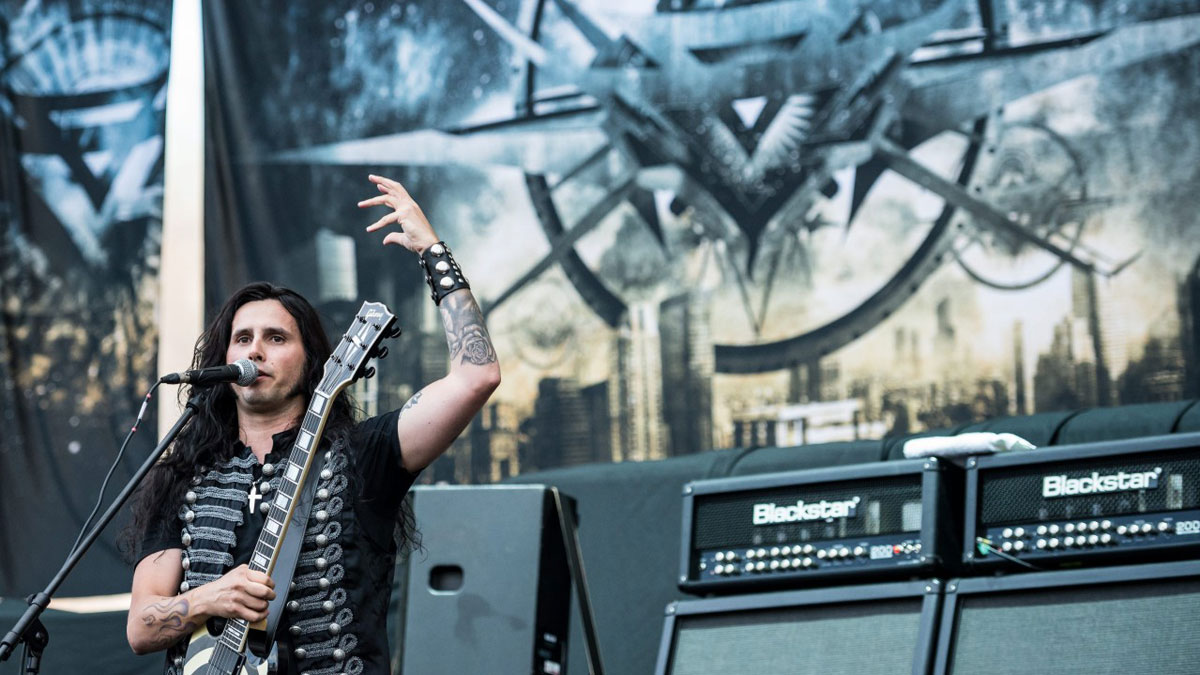
'Star turns
What gear did you use during the album’s recording sessions?
“I used my new [ESP] Random Star guitar in matt black with 24 frets. This is the first record that I’ve been using such high notes! Usually, my guitars are 22 frets. I really made use of those two extra frets!
There was my Blackfire signature head, the HT-100 Blackstar head and a lot of stuff with an EVH 5150III
“The only detuning song is What Lies Below where I detune to drop C. I don’t play seven-string, but I tuned to D standard so this was drop C. I used a combination of amps. There was my Blackfire signature head, the HT-100 Blackstar head and a lot of stuff we went back and re-amped with an EVH 5150III - I [recorded with a DI] all the way through, because you never know!
“I went through different tones. In the beginning, I wasn’t happy with some tones, so I went back and changed it again. The philosophy is the same [as my live rig]. Just a guitar through an amp and nothing in between.”
Chris has been the Editor of Total Guitar magazine since 2020. Prior to that, he was at the helm of Total Guitar's world-class tab and tuition section for 12 years. He's a former guitar teacher with 35 years playing experience and he holds a degree in Philosophy & Popular Music. Chris has interviewed Brian May three times, Jimmy Page once, and Mark Knopfler zero times – something he desperately hopes to rectify as soon as possible.


